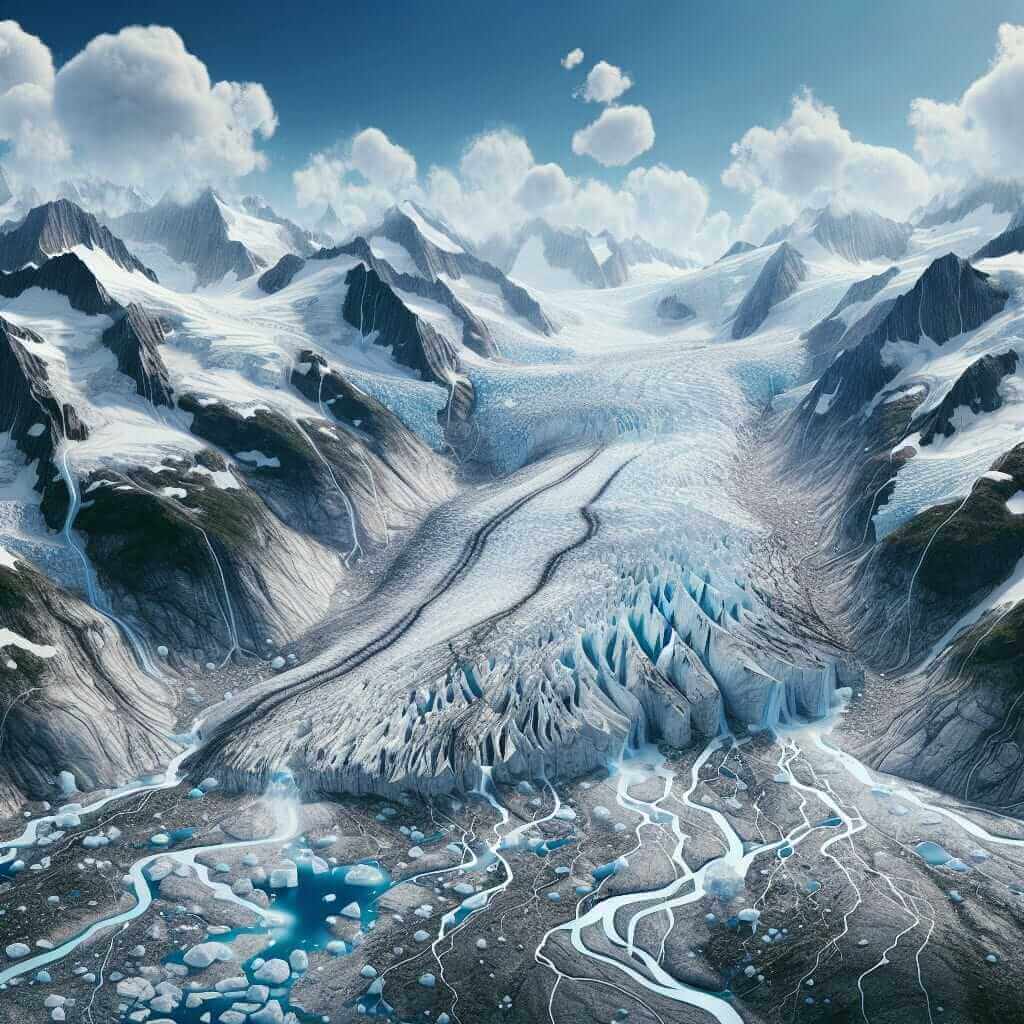The IELTS Reading test is an integral part of the IELTS exam, designed to assess a candidate’s ability to read and understand academic texts. One frequent topic that appears in these tests is climate change and its impacts. Given the increasing importance of environmental issues, understanding how climate change affects freshwater resources is essential. This topic has garnered significant attention historically and remains relevant, making it a likely subject for future IELTS exams.
Main Content
Reading Passage: How is Climate Change Impacting Freshwater Resources?
Hard Text
Freshwater resources are critical to the survival of countless ecosystems and human communities. Climate change, driven by human activities, has been profoundly altering these resources with implications that span across regions and sectors.
Effect on Ice and Snow Cover
Melting glaciers and reduced snowpack are stark indicators of a changing climate. Historically, glaciers acted as natural reservoirs, releasing water during warmer months. However, rising global temperatures have accelerated melting rates, leading to reduced freshwater availability. This trend affects regions dependent on glacial runoff, such as parts of the Himalayas and Andes.
Alterations in Precipitation Patterns
Climate change has disturbed traditional precipitation patterns, leading to irregular rainfall and snow events. Some regions may experience severe droughts, while others face unprecedented flooding. These anomalies not only lead to water scarcity but also impact agriculture, industry, and everyday life.
Impacts on Water Quality
Increased temperatures extend beyond affecting water quantity; they also degrade water quality. Warmer waters can foster harmful algal blooms, rendering water sources unsafe for consumption and recreation. Additionally, heavy precipitation can lead to runoff, which carries pollutants into rivers, lakes, and reservoirs.
Agricultural Concerns
Agriculture is intricately linked with freshwater availability. Changing climate conditions can lead to soil erosion, reducing the land’s ability to absorb and retain water. This has knock-on effects for crop yields and livestock, challenging food security worldwide.
Socioeconomic Implications
The socioeconomic consequences of altered freshwater resources are significant. Developing nations, which often lack robust infrastructure to manage water resources, are especially vulnerable. This can lead to increased conflict over water access and heightened migration pressures as communities seek more sustainable environments.
Biodiversity and Ecosystems
Ecosystems relying on specific climate conditions face threats from altered freshwater availability. Species that cannot adapt to the rapid changes face extinction, disrupting food chains and ecosystem services that humans rely on.

Practice Questions
Questions 1-3: Multiple Choice
-
Why are glaciers important to freshwater supplies?
- A) They act as natural reservoirs.
- B) They increase water temperatures.
- C) They decrease water quality.
- D) They reduce agricultural viability.
-
What is one consequence of altered precipitation patterns mentioned in the passage?
- A) Increased glacial formation.
- B) Water scarcity due to droughts.
- C) Consistent rainfall.
- D) Decreased temperature change.
-
How do warmer temperatures affect water quality?
- A) They decrease algal blooms.
- B) They increase harmful algal blooms.
- C) They improve soil retention.
- D) They ensure safer drinking water.
Questions 4-6: True/False/Not Given
-
Climate change only affects water quantity, not quality.
- True
- False
- Not Given
-
Developing nations are more vulnerable to changes in freshwater availability.
- True
- False
- Not Given
-
All species can adapt to rapid changes in freshwater resources.
- True
- False
- Not Given
Questions 7-10: Matching Headings
-
Paragraph A:
-
-
Paragraph B:
-
-
Paragraph C:
-
-
Paragraph D:
-
Answer Sheet
- A
- B
- B
- False
- True
- False
Matching Headings Answers:
- Effect on Ice and Snow Cover
- Alterations in Precipitation Patterns
- Impacts on Water Quality
- Agricultural Concerns
Common Mistakes and Tips
- Not Skimming the Text: Before answering, skim the text to get a general idea of the content.
- Misinterpreting Questions: Ensure to read each question carefully and understand what is being asked.
- Poor Time Management: Allocate time to each section and avoid spending too much time on one question.
Vocabulary
- Reservoir – /ˈrezərˌvwär/ – (n): A large natural or artificial lake used as a source of water supply.
- Precipitation – /prəˌsɪpəˈteɪʃən/ – (n): The action or process of precipitating a substance from a solution.
- Ecosystem – /ˈiːkoʊˌsɪstəm/ – (n): A biological community of interacting organisms and their physical environment.
- Algal Bloom – /ˈælgəl bluːm/ – (n): A rapid increase or accumulation in the population of algae in water systems.
Grammar Points
- Present Perfect: Used to describe actions that have occurred at an unspecified time. e.g., “Climate change has disturbed traditional precipitation patterns.”
- Third Conditional: Hypothetical situations in the past. e.g., “If temperatures had not risen, glaciers would not have melted so rapidly.”
Conclusion
Achieving a high score in the IELTS Reading test requires consistent practice and familiarity with common topics, such as the impact of climate change on freshwater resources. Understanding the structure and types of questions, managing time effectively, and expanding vocabulary and grammar knowledge are crucial steps in your preparation.
By incorporating these strategies into your study routine, you can enhance your reading skills and maximize your performance on the IELTS exam. For more insights into the effects of climate change on global water resources, consider exploring our related articles here.